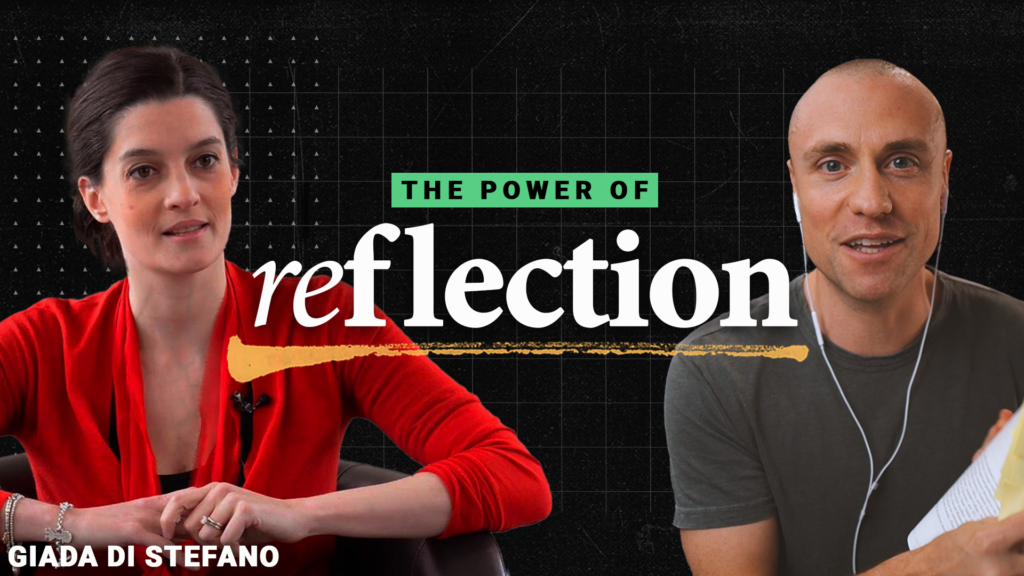- The Deep Dive
- Posts
- Mirror, Mirror....
Mirror, Mirror....
Looking at what could be the most important skill for a coach, reflection, and how we can shift the lens to ourselves more often

Hands up if you know who Peter Dale Wimbrow is?
If you’re like me, you don’t (or didn’t). He isn’t a household name. Chances are you may have come across one of his more famous pieces of work though. That piece of work is the poem “The Man in The Glass” (which I have included below). It’s a great poem, and one that holds valuable lessons for coaches.

I love this poem for a few different reasons. It always gives me an aspirational feeling that I can be better. It always brings role models to mind who I have respected though my life so far. And from a coaching perspective it appeals to my belief that reflection is a critical skill for coaches to develop, which is what I want to explore in this post.
I want you to think about the last time you coached. It could be a training session, or a match, or some other situation. I want you to reflect on how that session went. If it helps, answer these questions:
What was good about it?
What could have been improved?
What didn’t you like about it?
I am willing to bet that the majority of you reading this went immediately to how your athletes performed, and answered the questions above with thoughts like….
“Yea went pretty well, thought the team looked good. Maybe they didn’t quite grasp this one particular thing but for the most part, I’m happy”….(obviously I’m generalising, but the gist is clear).
I remember being introduced to the Dreyfus model of skill acquisition a few years back (see below):

As the model outlines, we move through a process of novice to expert in any skill that we are developing. As a coach, that could be our skills around training design, attention and focus, questioning or having difficult conversations. Reflection is one of these skills, and as you shift through from being a novice reflector to a more proficient reflector, I believe your focus on those questions above should start to shift from how your athletes trained to how you coached, and the interaction between those two things. As Wimbrow so eloquently puts it:
“The verdict that counts the most in your life
Is the guy staring back in the glass”
I believe that as coaches we need to switch our viewpoint so that when we reflect on a session with our athletes, our first thought is to analyse how well we coached. A saying that has become a bit of a mantra for me and my work with coaches is:
If you are coaching at your best, chances are your athletes will train at their best
I love this quote. Just think about what this means for a second before you read on, because there is a lot that can be taken from it. If you are coaching at your best, here are some things I believe you would see:
Your instructions are clear and concise
Your questions challenge and provoke
Your session flows
Your activities align to what your aims are
You tweak and modify the activities you planned to ensure the right amount of challenge for your athletes
You create a safe, engaging environment
You role model the behaviours and attitudes you want your athletes to live
If you coached a session and were able to demonstrate all of the above behaviours, then I would bet that your players would have trained at (or near) their best that day.
So when it comes to your reflection, next time you drive home after coaching and you’re running through your session in your mind (what worked and what didn’t), or you’re sitting down with a coffee actively reflecting, try to shift the focus from how the athletes trained to how you coached. When you start to shift the focus to how you coached, you will start to better understand the key behaviours that will allow you to become a more consistent coach. You will see that:
When your instructions are clear, your athletes grasp activities faster
When your questions probe, your athletes will solve problems faster
When your activities align to your overall goals, your athletes will understand the bigger picture faster
When your session flows, your athletes will stay engaged for longer
By focusing on how you are coaching when you reflect, you’re focusing on the critical factors that will help your sessions be great day in, day out. This in turn will allow your athletes to train at their best more consistently. So hold yourself to a high standard and demand the best from yourself.
“He’s the one to please, never mind all the rest
For he is with you clear up to the end”
For more on this, check out this short but powerful video from Trevor Ragan and his fantastic website, the learner lab:
Want to discuss anything you’ve read? Email us at [email protected]. We’d love to hear from you!
Want to share the Deep Dive with friends? Just send them the link below to subscribe:

